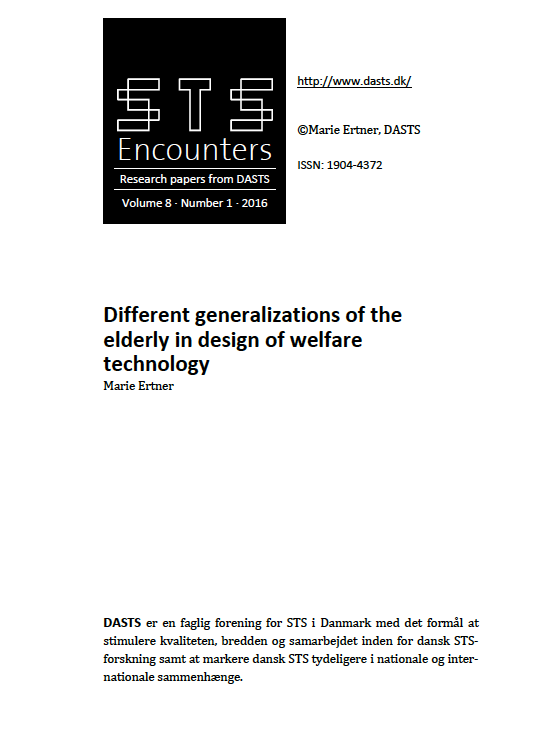Different generalizations of the elderly in design of welfare technology
DOI:
https://doi.org/10.7146/stse.v8i1.135231Abstract
This article explores problems of representing the elderly in a User Driven Innovation (UDI) project developing welfare technology. Drawing on Helen Verran’s concept of the dual logics of generalization I attend to differences in enactments of the elderly. I engage with situations where the objects we study do not seem to ‘fit’ with the categories available or when they seem ‘more than one, but less than many’, and I relate these issues to two different logics of generalization.
The contribution of the paper to design studies, and designers who experience difficulties inscribing the elderly into design, is that it shows how Science and Technology Studies (STS) can be useful in order to better recognize differences between different enactments of an imagined user, in this case the elderly.
The contribution of the paper to STS is a discussion of how I as an STS-informed ethnographer was invited to participate in a user driven innovation project. Based on my reflections on this role, the paper reflects on the ethnographic account as a tool with particular qualities and limitations when inhabiting a position as mediator between users and an innovation project.

Downloads
Published
How to Cite
Issue
Section
License

This work is licensed under a Creative Commons Attribution-NonCommercial-ShareAlike 4.0 International License.
Starting with volume 15, articles published in STS Encounters are licensed under Attribution-NonCommercial-ShareAlike 4.0 International (CC BY-NC-SA 4.0). The editorial board may accept other Creative Commons licenses for individual articles, if required by funding bodies e.g. the European Research Council. Previous articles are not licensed under Creative Commons. In these volumes, all rights are reserved to the authors of the articles respectively.




